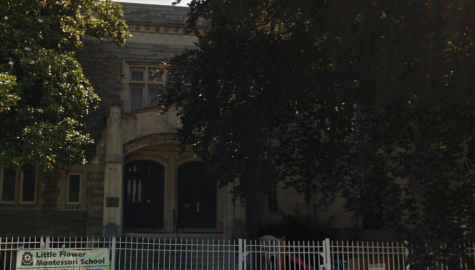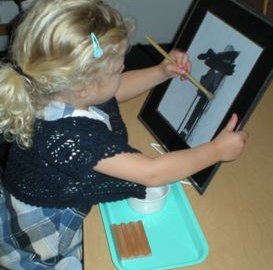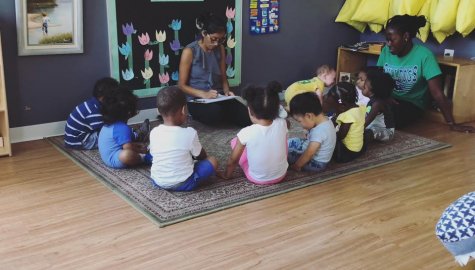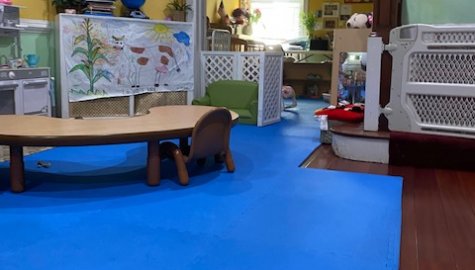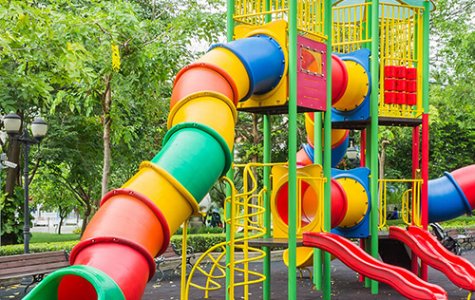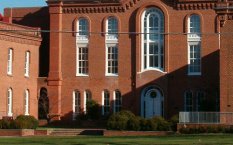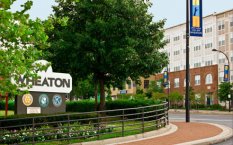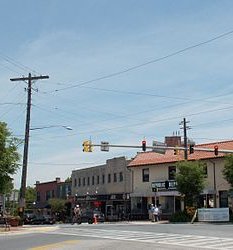
About Montessori Daycares Near Me
The Montessori philosophy was developed in the early part of the 20th century by Maria Montessori. It's a teaching philosophy that places a great deal of emphasis on creative, hands-on learning and student independence. In a Montessori preschool, kids from 2 to 5 years old all share the same classroom, with older preschoolers acting as role models for younger toddlers. Students typically have the same teacher (or "guide" as they are frequently known in Montessori schools) for several years which allows them to develop a closer relationship with their educator.
Teachers allow children to make their own choices and learn at their own pace: for instance, toys and learning materials are arranged in the classroom so that a child can see all the possible options and select a task according to their interests or abilities. Preschoolers in a Montessori school are also encouraged to be responsible and independent. For instance, they usually prepare their own snacks, pour themselves milk, clean up, and put on their own coats.
The Montessori approach allows for children to learn at a much deeper and more meaningful level. Simply knowing something intellectually is not enough and kids will typically gain sensory awareness. A child in a Montessori program will feel, smell, taste, hear, or touch what they are learning about so that it becomes "real" for them. Children will also develop language and math skills with their teacher as their guide.
However, teachers rarely "teach" in the way that most people think of teaching. This particular approach to early childhood education was introduced by a Frenchman named Jean Piaget when he developed the constructivist theory. His theory was that people learn best when they "construct" their own knowledge.
Here is an example of how this type of learning works: for a lesson on the weight of objects, a teacher would supply scales and objects of various weights and maybe demonstrate how a scale works. Children would then be allowed to explore these materials and see what they could find out. Eventually, once the preschoolers had developed their own ideas about weights, measurements and scales, the teacher might give them the terms "weight", "scale" and "grams" so that they would know how to communicate their findings.
In Montessori daycares and preschools, the teacher is never the "star of the show" and does little direct instruction. Their job is to set up a learning environment which will foster children's education of themselves. This is an indirect approach to early education that is ideal for independent, smart and free-spirited kids who are more successful in less structured environments. A Montessori school can also be a good environment for special needs children because they receive individually-tailored attention and are able to develop a bond with their teacher.
Other Montessori Daycares Near Me
Recent Reviews for Montessori Daycares
Shaw Little Kids Playhouse, Washington DC
"We love having our son at this daycare! He has been there since 6 months and is always happy when we pick him up. The staff are very kind and attentive and always share how his"
Read More
Florida Ave Schoolhouse, Washington DC
"She was amazing with my daughter and the only reason we left is because we moved out of state. I felt so comfortable leaving my baby with her and I felt like she cared for my baby"
Read More
People who searched for "Montessori Daycares" also viewed
Frequently Asked Questions
How many montessori daycares and preschools are there in the US?
There are 4,502 montessori daycares and preschools in the US, based on CareLuLu data. This includes 1,157 home-based programs and 3,345 centers.
How much do montessori daycares and preschools cost in the US?
The average cost of montessori daycares and preschools in the US is $956 per month. This is the average price for full-time, based on CareLuLu data.
How many montessori daycares and preschools offer infant care in the US?
Based on CareLuLu data, 1,455 montessori daycares and preschools care for infants (as well as toddlers).
How many montessori daycares and preschools offer part-time care or drop-in care in the US?
Based on CareLuLu data, 2,172 montessori daycares and preschools offer part-time care or drop-in care in the US.
How many montessori daycares and preschools teach a foreign language in the US (Spanish, French, Chinese, etc.)?
Based on CareLuLu data, 1,438 montessori daycares and preschools speak at least one foreign language. Spoken languages include Spanish, French, Hindi, Chinese and Arabic.
Top Resources Related to Daycares
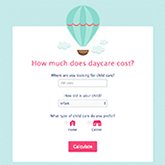
How Much Does Daycare Cost? Check the Daycare Price Calculator
How much does full time daycare near me cost? Is home daycare more affordable than a center?
How much does full time daycare cost? Is home daycare near me more affordable than a center? Use our Daycare Tuition Calculator to find out average daycare tuition rates in your zip code.
See More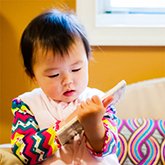
Child Care Center vs. Home-Daycare: Pros & Cons
Which environment is better, a child care center or a home-based daycare? The answer is simple...
During a child care seminar for parents and parents-to-be, I realized the differences between child care centers and home-based daycares were unclear to a lot of families. I was asked which environment was the best, center or home. My answer was simple...
See More
Preschool Teaching Philosophies in a Nutshell
Montessori, Waldorf, Reggio Emilia, High-Scope... which preschool teaching philosophy is the best?
Montessori, Waldorf, Reggio Emilia, High-Scope, Bank Street... Most likely you've never come across such terms, unless of course... you started looking for a preschool! Which preschool teaching philosophy is the best? Find out how they are different.
See More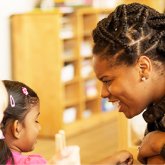
Switching Daycares: 7 Tips for a Smooth Transition
Thinking of switching daycares? These 7 practical, expert-backed tips will help you prepare your child emotionally and make the change as smooth as possible.
Thinking of switching daycares? These 7 practical, expert-backed tips will help you prepare your child emotionally and make the change as smooth as possible.
See More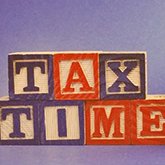
How To Get Your Child Care Tax Credit
Here are 10 things you need to know to claim your Child and Dependent Care Credit...
For most families, child care is the highest single household expense. But, there's good news! Uncle Sam is here to help and can offset some of your daycare costs. Here are 10 things you need to know to claim your Child and Dependent Care Credit...
See More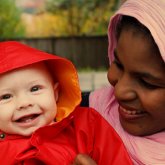
7 Gift Ideas for Child Care Provider Appreciation Day
Are you looking for gift ideas for Child Care Provider Appreciation Day? We've got 7 memorable suggestions to celebrate the ones who care for your little ones.
Are you looking for gift ideas for Child Care Provider Appreciation Day? We've got 7 memorable suggestions to celebrate the ones who care for your little ones.
See More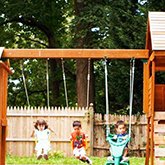
What to Look for During a Child Care & Preschool Tour
Make the most of your daycare tour, here's how to evaluate the program before your child enrolls.
The daycare and preschool tour is a (maybe even the) key moment in the decision making process, so it's important that you make the most of your daycare tour. Here's how to evaluate the child care program before your child enrolls.
See More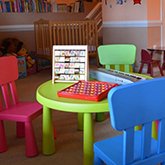
10 Tips for Finding Great Child Care
Here are 10 tips to help you find affordable and quality child care.
When I needed a daycare and a preschool for my girls, I spent days on Google, phone, and visiting in person. I toured 16 centers before settling for the one that felt right for us. Here are 10 tips to help you find quality child care more easily.
See More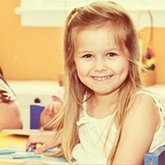
How to Get Your Child to Share Their Day at Daycare & Preschool
"How was your day?" you ask your preschooler. If you're lucky, you'll get "Good." Here's why...
"How was your day?" you ask your preschooler. If you're lucky, you'll get "Good." "Why doesn't my little one tell me about her day?" you wonder. This is a parenting conundrum that baffles many. There are a few possible reasons...
See More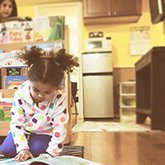
How to Find the Best Daycare for You
In this post, we'll walk you through how to find a daycare and criteria to help you narrow down options.
There are many things to consider when searching for the best daycare for your family, which can understandably leave you feeling overwhelmed. In this post, we'll walk you through how to find a daycare and criteria to help you narrow down options.
See More



